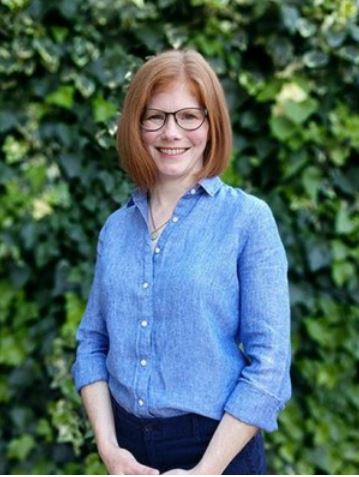
What is your current profession/job? What did you study at Yale? When did you graduate?
I am the Science Data Librarian for Stanford University Libraries. I like to think of my myself as a science enabler; I help other people do science better and more easily, and in this way I contribute to science without actually doing any science myself.
My role is to develop and maintain a suite of data management services that will improve the efficiency and the effectiveness of how scientists do their research. The specific things I do are constantly changing, but two major areas of focus are 1) working with researchers to use the Stanford Digital Repository for preservation and sharing of research data and 2) improving technical and computational skills needed for today’s research but often lacking in graduate student curricula.
I earned a PhD from Yale in 1999 from the Molecular Biophysics and Biochemistry Department. My research area was ubiquitin-mediated regulation of the cell cycle in Saccharomyces cerevisiae.
What do you like most about your current role? What do you find most challenging and/ or rewarding?
The best part of my current position is helping people solve their problems. I love seeing how excited people get when they learn how to do something that is going to make their lives easier, or when they find out about a tool or a service that meets some urgent need. The most challenging thing is sometimes also the most rewarding, and it’s this: there is always something that I need to do that I have never done before. These are often great opportunities to extend my professional skills, but require a lot of effort and commitment to approach with good humor and grace and pull off successfully.
How did your time at Yale shape your career trajectory?
It may sound like an odd thing to say, but my years working at a bench in a lab made it very clear to me that I did not want to do that for a moment longer than I needed to. This was a good thing to learn! My thesis advisor was adamant that someone with a science PhD from Yale could do whatever they wanted when they graduated, that the most important things learned in graduate school weren’t the minutiae of the field in which you were working, but the problem-solving and critical thinking skills that you developed and refined during that time. His influence made me more confidant about completing my PhD and then pursuing employment that allowed me to still be part of the scientific community without having to work at a bench.
What are the main skills that you acquired as a PhD student which help make you successful in your current career?
The more time that elapses since I earned my PhD, the more strongly I feel that troubleshooting and problem-solving skills have been key to my career success. It’s hard when you are in graduate school to take seriously that employers will value these skills at least as much as the degree or specific experience in a field, but in the end I think it’s absolutely true.
One of the reasons I was hired as a librarian was because I have a PhD with the experience of doing scientific research. This have proven invaluable in making connections with the faculty at Stanford; they immediately feel that I understand their needs and frustrations, even when their fields are vastly different from my own.
Did you acquire any professional experience related to your line of work while in graduate school?
I honestly can’t say that I did. The first job I had out of grad school was working for a company that built science databases. I used those databases when I was working on my dissertation research. When I graduated, I applied to work for the company as a contractor. My solid work earned me a full-time position, and I continued working at science database organizations for 9 years. That experience along with my PhD and the people skills that I gained elsewhere were the combination of traits that made me a good candidate for the position I hold now.
What advice would you offer PhDs who are interested in your line of work?
Many libraries are hiring people in data services these days, and many of these libraries are focused on technical skills and downplaying the need for library degrees (MLS, MLIS). This is good news for science PhDs who want to be involved in science and like the atmosphere of academia but don’t want to do bench research. If you’re interested in working for a university library, two great skills to develop would be communication skills (both speaking and writing for a wide variety of audiences) and program development. Librarians spend so much time trying to market their services — they call this “outreach” — that taking marketing classes might also be a practical and useful thing to do.
